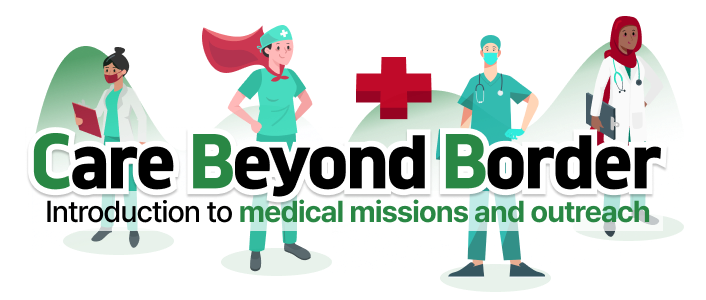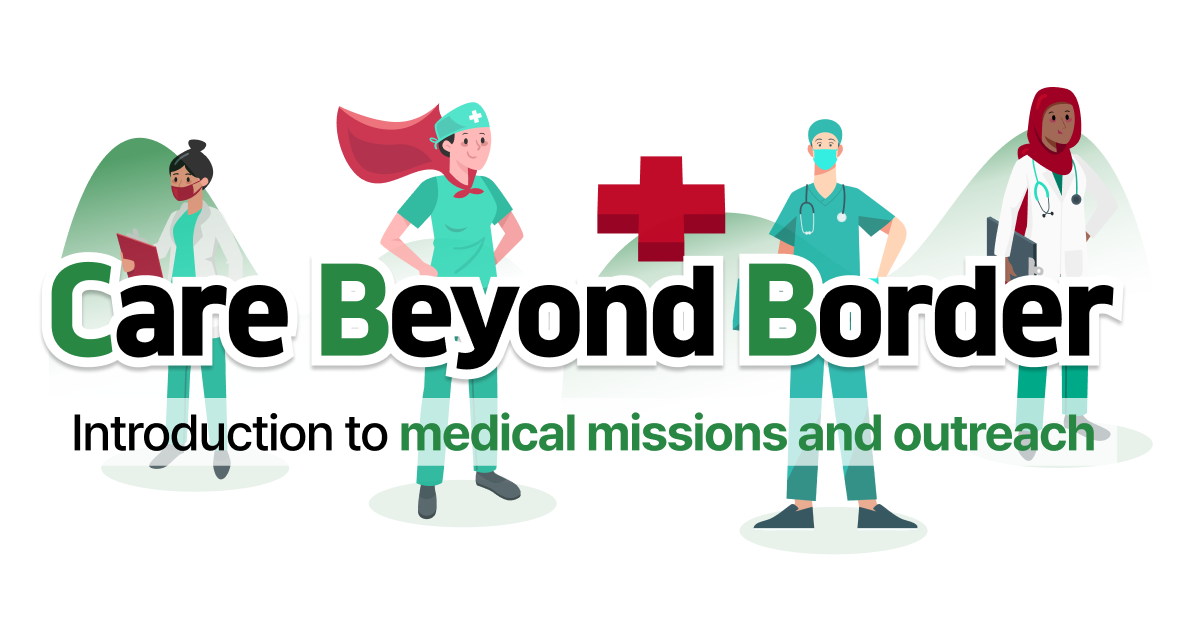Medical Missions Transform Lives in Conflict-Stricken Nigerian Region
Walking through the ripe sorghum fields, a woman in Dongol, Nigeria, was seen gently carrying her elderly mother-in-law to a temporary clinic, a beacon of hope set up amidst the rustic landscape. The makeshift clinic, nestled between fields and under the comforting shade of tents and trees, was the center of a gathering where a small group of Americans observed the unfolding scenes. Among those caring figures was Asabar Idi, an elderly woman confronting her visual challenges due to recent cataracts, which compounded her previous adversities following a leg amputation.
“This is a timely intervention, we must say,” articulated Sanday Samuel, an official representing the Dongol chief. His role as a community wakili sadarwa likens to that of an ambassador, bridging connections between groups. Expressing gratitude, he concluded, “We want to thank God that this is coming right at the time that it’s been needed the most.”
Healthcare Challenges in Remote Communities
This clinic marked the first venture into combined medical and dental care under the auspices of Hope Springs International, a U.S.-based ministry tied to the Churches of Christ. Although this organization had previously focused on providing essential water wells for the region, bringing health care services was unprecedented. The community of Dongol, consisting of around 700 residents, faces a significant challenge—the nearest medical facility is a strenuous 90-minute walk away. This isolation often pushes villagers toward traditional healers lacking in formal medical training or certification. As seen with Idi’s case, these healers sometimes undertake radical procedures, like amputations, which may not be necessary if proper medical scrutiny were available.
Samuel, reflecting upon the situation remarked, “Honestly, most of the time you find out that the professionals here are really not actually professionals.” Those sincere practitioners often have no choice but to refer patients to larger hospitals. However, the prohibitive economic conditions lead to even these critical referrals being forgone. Therefore, interventions like this clinic are monumental for local accessibility to health care.
The Shadow of Conflict
In northeastern Nigeria, according to a 2023 report by the U.S. Agency for International Development, approximately 8.3 million people are in need, with an additional 4.4 million facing food insecurity. Despite these severe conditions, global nonprofits and humanitarian organizations remain scarce due to fierce deterrence caused by terrorist groups like ISIS-West Africa and Boko Haram.
Stepping outside the clinic's makeshift sanctuary, one observes local men armed and vigilant, a reminder of the constant threat. These men, coupled with a 13-person armed security detail supplied by the Nigerian government, provided assurance to Hope Springs’ mission in the region of Gombe State. “Before the onset of the insurgency and the insecurity that now abounds everywhere, we used to have an opportunity to come work and be able to help propagate the Gospel here,” explained Rambi Ayala. As the director of operations for Hope Springs in Africa, Ayala voiced concerns that the persistent fear for safety is warranted, especially since northeastern Nigeria remains the hotspot for Boko Haram activities.
Overcoming Fear and Misinformation
The journey to forming an effective medical team was not without its hurdles. Initial outreach efforts by Hope Springs faced skepticism and fear-driven refusals, including one from Jennifer Collins, a nurse practitioner. “Nope, they kill people in Nigeria,” was Collins' first reaction, reflecting a common fear in Western perceptions. However, with tenacity and prayer, and a persuasive follow-up, she became part of a group of 11 American health professionals to spearhead the mission in Nigeria.
Lee Hodges, president of Hope Springs, recognizes these concerns. Having made 15 trips to the African continent, overseeing activities in regions within Chad, Niger, and Nigeria, Hodges notes, “Safety is always a concern.” Yet, he emphasizes, “It’s the Muslims killing Muslims.” Christians may be primary targets, but undeniably, the violence inflicted by terrorist groups affects all inhabitants.
Navigating Corruption and Expanding Impact
While managing safety posed significant challenges, operational issues rooted in corruption surfaced at the clinic. Instances of security personnel accepting bribes to alter queue priorities or financial transactions between patients and triage areas underscored the ingrained survival tactics in such regions. “Corruption is going to be everywhere,” commented Jon Harris, a videographer from Hope Springs, acknowledging that in these harsh environments, corruption is intertwined with daily survival.
Despite these adversities, Hope Springs remains defiant in its mission to extend its impact. The organization carefully selects teams ensured by integrity and faithfulness, often employing graduates from the School of Biblical Studies. Updates through photos and videos keep their board members and donors consistently informed and aligned.
Since starting operations in northeastern Nigeria, Hope Springs has successfully drilled over 200 wells, with NorthField Church sponsoring at least 50 of these vital water sources. Drawing parallels between water and health interventions, Hodges states, “It’s always water and health — it always comes in that order — and then education, if at all possible.”
A Vision for Change
The recent campaign to provide medical and dental services marked an ambitious expansion into healthcare for Hope Springs. Relying on the expertise of both American volunteers and 23 Nigerian healthcare professionals, the clinics reached four rural locations, addressing the most pressing needs of impoverished communities.
For Tom Haddon, pastor at the NorthField Church, witnessing firsthand the life-altering impact of these clinics was poignant. Observing Idi’s journey to the clinic likened to stories of the lame reaching out to Jesus for healing, Haddon reflected on the potential impact simple yet crucial medical intervention could have. Knowing the cost of cataract surgery—25,000 naira, about $15.50—for 75 individuals served during the campaign, Haddon committed his congregation to cover these transformative surgeries.
Aiming for more than just immediate relief, Hope Springs seeks to merge humanitarian aid with the Gospel’s work. As Hodges articulated, “We are more than a humanitarian organization.” Their mission goes beyond business and financial aid, aspiring to lead individuals to experience the love inherent in Christian teachings, paralleling Christ’s acts of feeding and healing.
In this challenging environment, Hope Springs stands as a testament to the potential for compassion and resilience, illustrating the profound changes that can arise from committed service, genuine concern for others, and the faith-driven pursuit of a greater mission.
출처 : Original Source

